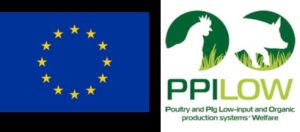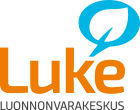Project Information Sheet
Title of the project: PPILOW ‘Poultry and PIg Low-input and Organic production systems’ Welfare’
Project Coordinator: Institut National de Recherche pour l’Agriculture, l’alimentation et l’Environnement (INRAE)
Context and funding of PPILOW project
To propose and study innovations in low-input outdoor and organic poultry and pig production, INRAE (France) is leading the PPILOW European Union funded project on animal welfare in these production systems. The purpose of the project is to co-construct, through a multi-actor approach, innovations to improve the welfare of poultry and pigs reared in low-input outdoor and/or organic farming systems. The PPILOW has received funding from the European Union Horizon 2020 ’ Research and Innovation’ Programme under Grant Agreement No. 816172. The information provided reflects the views of its authors. The Executive Agency for Research of the European Commission cannot be held responsible for the use of the information provided.

Introduction
PPILOW project invites you to participate in a survey led by Jarkko Niemi, research professor at Natural Resources Institute Finland (Luke), Latokartanonkaari 9, FI-00790 Helsinki, Finland, jarkko.niemi@luke.fi, tel. +358 40 358 0487. The legal basis for this project is the performance of a public interest task requiring your consent in accordance with the General European Data Protection Regulation nᵒ 2016/679.
Before deciding to take part in this research project, please take time to read the following information. If you do agree to participate in the survey, you may also choose not to answer any of the questions, or at any time stop contributing without having to explain why.
The usefulness of the data collected in achieving the aims of this research project
The aim of the survey is to evaluate the barriers and develop levers for implementation of production practices related to the absence of mutilations and the potentially animal welfare-improving strategies in organic and low-input pig and poultry production.
Your involvement in this research project consists of answering questions and expressing views in a survey delivered to you.
Your rights regarding confidentiality and privacy
The private data (related to your identity) will be treated with the utmost confidentiality. PPILOW project will not collect information on your identity in the survey form. In order to minimise the collection of personal data, the project will keep all data anonymous. If you give identification information in the questionnaire, it will not be stored in the data file extracted from the survey software.
The information you will provide in the questionnaire is for the use of the project partners for the PPILOW project. Anonymized answers of the survey will be communicated to PPILOW project partners. The private data will not be transmitted to any other recipient, nor used in any context other than that described above. By default, it is prohibited to communicate private data to an undisclosed recipient (except authorized third parties).
The data obtained from the survey will be kept secure for the entire duration of the research project, i.e. 5 years, and the following 5 years, on servers at Natural Resources Institute Finland (Luke). This site meets the security requirements of Article 32 (1) and 32(2) of GDPR. At the end of this period, the anonymous information collected will be archived.
Your rights regarding your questions
You can ask questions about the research project at any time by contacting the local study lead.
Partners and contacts involved in PPILOW WP1 Task 1.3 consumer surveys
Natural Resources Institute Finland (Luke, Finland), Lead partner of task 1.3:
Jarkko Niemi, Research professor at Luke, jarkko.niemi@luke.fi;
Katja Lähtinen, Research professor at Luke, katja.lahtinen@luke.fi;
Minna Väre, Senior scientist at Luke, minna.vare@luke.fi;
Katriina Heinola, Researcher at Luke, katriina.heinola@luke.fi;
Harper Adams University (HAU, UK):
Keith Walley, International programme coordinator at HAU, kwalley@harper-adams.ac.uk;
Patricia Parrott, Principal lecturer agri-food marketing at HAU, tparrott@harper-adams.ac.uk;
Shelley Allan, Research assistant at HAU, sallan@harper-adams.ac.uk ;
French National Research Institute for Agriculture, Food and Environment (INRAE, France):
Claire Bonnefous, PhD student at INRAE, claire.bonnefous@inrae.fr;
Anne Collin, Research director at INRAE, anne.collin@inrae.fr;
Agricultural Technical Institutes (ACTA: ITAVI/IDELE/IFIP/ITAB, France):
Elsa Delanoue, Project manager at IDELE, IFIP, ITAVI; Elsa.Delanoue@Idele.Fr
Marion Pertusa, Project manager at ITAVI, Pertusa@Itavi.Asso.Fr
Antoine Roinsard, Researcher at ITAB, antoine.roinsard@itab.asso.fr
Associazione Italiana Agricoltura Biologica (AIAB, Italy):
Martina Re, Junior researcher at AIAB, martinapinire@gmail.com;
Cristina Micheloni, Ssenior advisor at AIAB, cristina.micheloni@gmail.com;
BioForum (BioForum, Belgium):
Laura Van Vooren, Project manager at BioForum, laura.vanvooren@bioforumvl.be
Walloon Agricultural Research Centre (CRAW, Belgium):
Sophie Herremans, Project manager at CRAW, s.herremans@cra.wallonie.be
SlowFood International (SlowFood, Italy):
Raffaella Ponzio, Project manager at SlowFood, r.ponzio@slowfood.it;
Johann Heinrich von Thünen Institute (TI, Germany)
Petra Thobe, Dr. at TI, petra.thobe@thuenen.de
Lisa Baldinger, Dr. at TI, lisa.baldinger@thuenen.de
Utrecht University (UU, the Netherlands)
Bas Rodenburg, Professor at UU, t.b.rodenburg@uu.nl
University of Agronomic Sciences and Veterinary Medicine of Bucharest (USAMV, Romania)
Vasile Cozma, Professor at USAMV, cozmavasile.prof@gmail.com
Marina Spinu, Professor at USAMV, marina.spinu@gmail.com
Veterinari senza Frontiere (VSF, Italy):
Anna Zuliani, Senior adviser at VSF, ppilow@vsf-italia.it;
Pietro Venezia, Senior adviser at VSF, ppilow@vsf-italia.it
Aarhus University (AU, Denmark)
Sanna Steenfeldt, Senior researcher at AU, sanna.steenfeldt@anis.au.dk
Plausible risks associated with the study
While the data will be collected anonymously the results of the studies will be disseminated publicly, and it is advised not to communicate any confidential or sensitive information that you do not wish to be published.
Expected benefits of the study
Designing an inventory of the techniques and practices will help to identify the need for research and practices that can improve animal welfare in organic or outdoor poultry or pig farming systems. You will be able to read a synthesis of the results by the end of year 2021 at the PPILOW project website (www.ppilow.eu).
Dissemination
Research results will be disseminated at conferences, in meetings with practitioners, by videos, through e-learning materials, in conference proceedings and via academic and popularized journal articles. Information will also be made available via the PPILOW project website: www.ppilow.eu.
